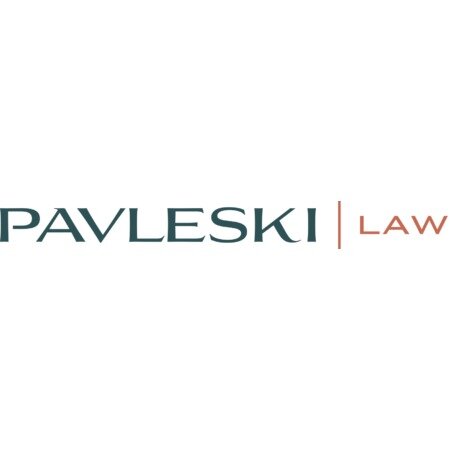Best Same Sex & LGBT Lawyers in Belgrade
Share your needs with us, get contacted by law firms.
Free. Takes 2 min.
Free Guide to Hiring a Family Lawyer
List of the best lawyers in Belgrade, Serbia
About Same Sex & LGBT Law in Belgrade, Serbia
In Serbia, as in many other places around the world, the law and societal attitudes regarding same-sex relationships and the rights of LGBT individuals have been evolving over the years. While homosexuality has been decriminalized since 1994, the legal rights for LGBT individuals are still developing. Discrimination on the basis of sexual orientation or gender identity is forbidden by Serbian law since 2009, proving that the government recognizes the gravity of discriminatory issues faced by this community.
Why You May Need a Lawyer
Turning to a legal professional for advice can be beneficial in a variety of situations related to LGBT issues. This can include situations concerning discriminatory practices at work or at public places based on sexual orientation, issues relating to transitioning for transgender individuals, difficulties related to same-sex partnership or cohabitation, or disputes concerning child custody and visitation rights. It could also concern situations of hate crimes, where legal representation is important.
Local Laws Overview
The Constitution of Serbia guarantees equality for all citizens and forbids discrimination on any grounds. However, there are specific laws to protect the rights of LGBT individuals which include: Anti-Discrimination Law which prohibits discrimination on the grounds of sexual orientation and gender identity; Labour Law that prohibits discrimination on the basis of sexual orientation in employment; and the Law on Higher Education, which prohibits discrimination on the basis of sexual orientation at universities and colleges. However, there are no laws as of now that recognize same-sex partnerships or marriages.
Frequently Asked Questions
1. Is homosexuality legal in Serbia?
Yes, homosexuality has been decriminalized in Serbia since 1994.
2. Are there anti-discrimination laws related to LGBT individuals in Serbia?
Yes, Serbia has various anti-discrimination laws in place that protect the rights of LGBT individuals.
3. Can LGBT individuals adopt in Serbia?
According to Serbian law, only married couples can adopt children. Since same-sex marriages or partnerships are not legally recognized, same-sex couples cannot jointly adopt children.
4. Are there laws protecting transgender people in Serbia?
Yes, the anti-discrimination law of Serbia includes provisions against discrimination based on gender identity.
5. Are same-sex marriages recognized in Serbia?
No, at the moment, same-sex marriages are not recognized in Serbia.
6. Are there any local LGBT organizations that can provide support?
Yes, there are several non-government organizations that support the rights of LGBT individuals and provide assistance and guidance.
7. Are there any Pride events in Belgrade?
Yes, Belgrade Pride, an annual event advocating for the rights and visibility of the LGBT community, has been held in Belgrade since 2001.
8. Can I report cases of discrimination or hate speech based on my sexual orientation?
Yes, Serbian law is designed to protect you from discrimination and hate speech. You can report incidents like these to the police or responsible bodies.
9. Can I legally change my gender in Serbia?
Yes, legal gender recognition is allowed following gender reassignment surgery. The process, however, can be lengthy and complicated, for which consulting a lawyer might be appropriate.
10. If I am a victim of a hate crime, what legal recourse do I have?
Being the victim of any crime motivates a police investigation, and this is no different in the case of hate crimes. Lawyers can guide you through the process of pressing charges and can help ensure that such incidents are punished by law.
Additional Resources
Labris - a lesbian human rights organization, and the LGBT organization Da se zna! are important non-governmental organizations in Serbia working to secure the rights of the LGBT community. They provide valuable support, information and guidance.
Next Steps
If you find yourself in need of legal assistance related to any LGBT issue in Belgrade, the best course of action is to find and consult with a lawyer or legal firm that specializes in LGBT law or human rights law. Reaching out to Serbian LGBT organizations can provide you with the needed guidance to find such specialized legal professionals.
Lawzana helps you find the best lawyers and law firms in Belgrade through a curated and pre-screened list of qualified legal professionals. Our platform offers rankings and detailed profiles of attorneys and law firms, allowing you to compare based on practice areas, including Same Sex & LGBT, experience, and client feedback.
Each profile includes a description of the firm's areas of practice, client reviews, team members and partners, year of establishment, spoken languages, office locations, contact information, social media presence, and any published articles or resources. Most firms on our platform speak English and are experienced in both local and international legal matters.
Get a quote from top-rated law firms in Belgrade, Serbia — quickly, securely, and without unnecessary hassle.
Disclaimer:
The information provided on this page is for general informational purposes only and does not constitute legal advice. While we strive to ensure the accuracy and relevance of the content, legal information may change over time, and interpretations of the law can vary. You should always consult with a qualified legal professional for advice specific to your situation.
We disclaim all liability for actions taken or not taken based on the content of this page. If you believe any information is incorrect or outdated, please contact us, and we will review and update it where appropriate.









